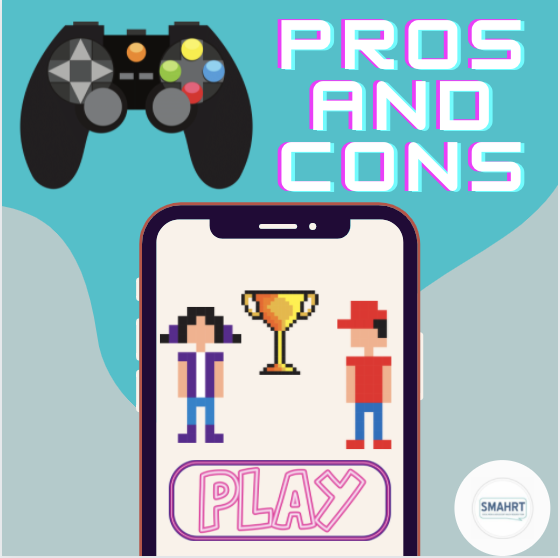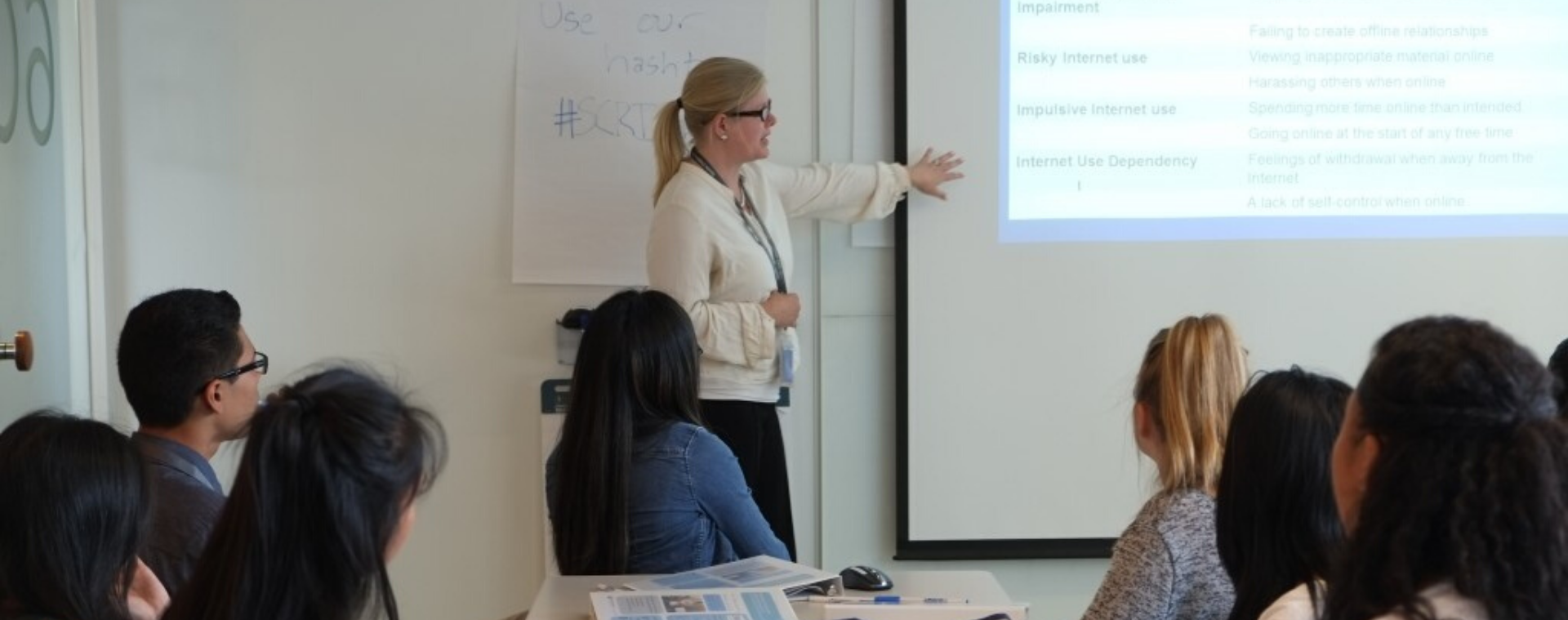By: Sabine Hansen
Video gaming, once considered a fad in the 70’s and 80’s, has swept the world by storm as technology continues to grow the field of online entertainment. With consoles and smartphones becoming popular household staples, the question arises: what do we know about video games and adolescent health, and what is still a mystery? In celebration of 2021’s National Video Game Day, SMAHRT plans to unpack the pros and cons of online gaming to more fully understand user health.

What We Know:
Video gaming can be tied to increased happiness: According to research from the University of Oxford, video game players reported feelings of happiness after time spent playing online. The study looked at two specific games, Nintendo’s Animal Crossing and Electric Arts’ Plants vs Zombies, working with gaming companies to report user data for accuracy. This research development is especially relevant due to a large increase in screen time throughout the COVID-19 pandemic. The lead author of the study, Andrew Przybylski elaborated saying, “In fact, play can be an activity that relates positively to people’s mental health and regulating video games could withhold those benefits from players”. It is important to note that the study was limited to these specific games and that researchers did not conclude overall better mental health.
Violent and mature video games can affect mental health: In a more targeted look at video games with mature or violent content, a SMAHRT member and other research collaborators studied the effects of high-risk video gaming had on social and behavioral health. The term “high-risk” refers to an increased level of mature and violent themes, often associated with first person shooter games or those with content warnings. The research concluded that middle schoolers that played these games exhibited higher depressive symptoms, less sleep, and more problematic internet usage than their non-user peers. Additionally, the study discovered high-risk video game users spent more time playing online games, spent more money on gaming and spent less time with schoolwork and family. SMAHRT hopes that this research can be used to inform guidelines for adolescents to intervene when problematic behaviors emerge.
Video gaming can improve dexterity and problem-solving: An article published by the American Psychological Association (APA) shows associations between video game use and increased dexterity and problem-solving attributes. In fact, gaming is a popular pastime for surgeons to practice laparoscopic nimbleness and strengthen their operating skills. Not only does video game usage increase dexterity, but it also increases spatial reasoning, allowing for better performance when practicing drill testing skills. The lead researcher on the study, Dr. Douglas Gentile, suggests, “This means that games are not ‘good’ or ‘bad,’ but are powerful educational tools and have many effects we might not have expected they could.” Allowing video gaming to pass the threshold from pastime to preparation.

What we don’t know:
How new forms of video gaming will affect health: As technology develops and expands beyond previous restrictions, the effects of new consoles are unknown. Video gaming was originally restricted to arcade use, but with advancements, handheld devices as well as at home consoles became accessible to the public. Now, virtual reality technology is on the path to becoming just as common place as its predecessors. Additionally, AI or artificial intelligence is beginning to advance for consumer use. This can be seen through the increase of Google Home and Amazon Alexa technology. Although all these achievements are beneficial, the effect of more advanced technological game play on heath is unknown.
What age restrictions on gaming should be: Generation Z and Generation Alpha were born into a world were technology is part of their everyday life. Video gaming is now accessible to all ages, rather than just those who are mature enough to afford the gaming consoles and accessories. With effects on adolescents and video game usage underdeveloped, science on age restriction for gaming systems and online games is relatively unknown. Currently, there are ratings on video games to ensure the purchaser understands the gaming content. However, there is not overarching regulation to stop mature content from reaching young consumers.
Lasting effects: With video gaming a relatively new technological advancement, researchers are still left questing a lot of the lasting effects that extended exposure to video games will have on health and social behaviors. This is especially relevant as gaming continues to feature mature subjects such as war, drugs, and gun violence.
Although there are benefits to playing video games both mentally and physically, users should be beware of the content that could impact social and behavioral health. Whether you use video games to relax after an active day or to hang out with your friends, video games are a diverse in their ability to be both entertaining and educational. So, play wisely and happy national video game day!


